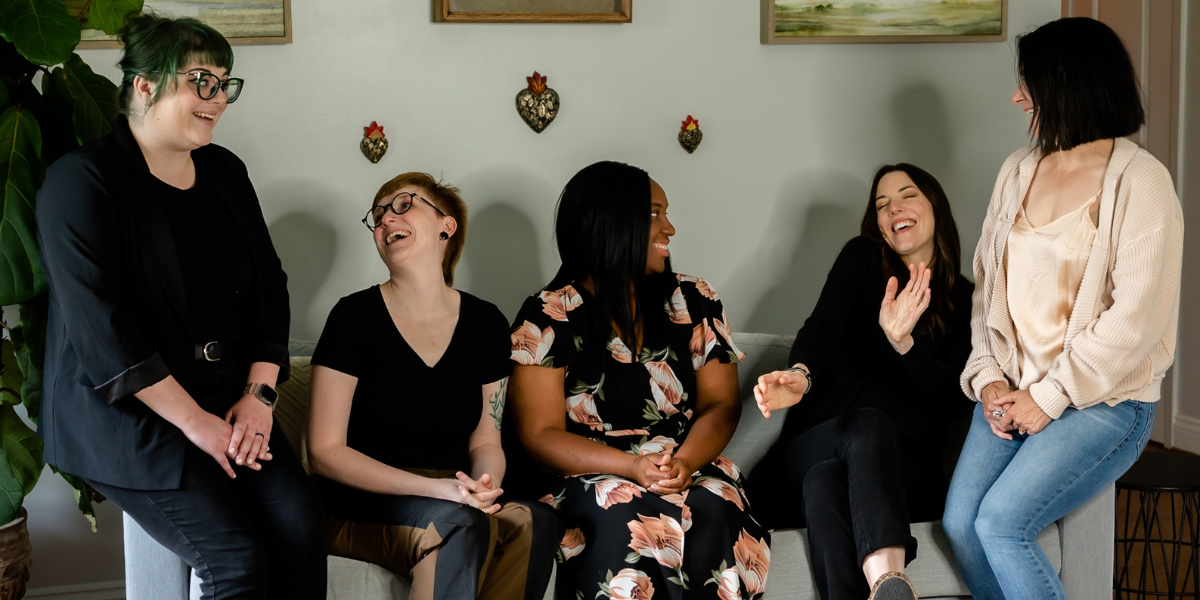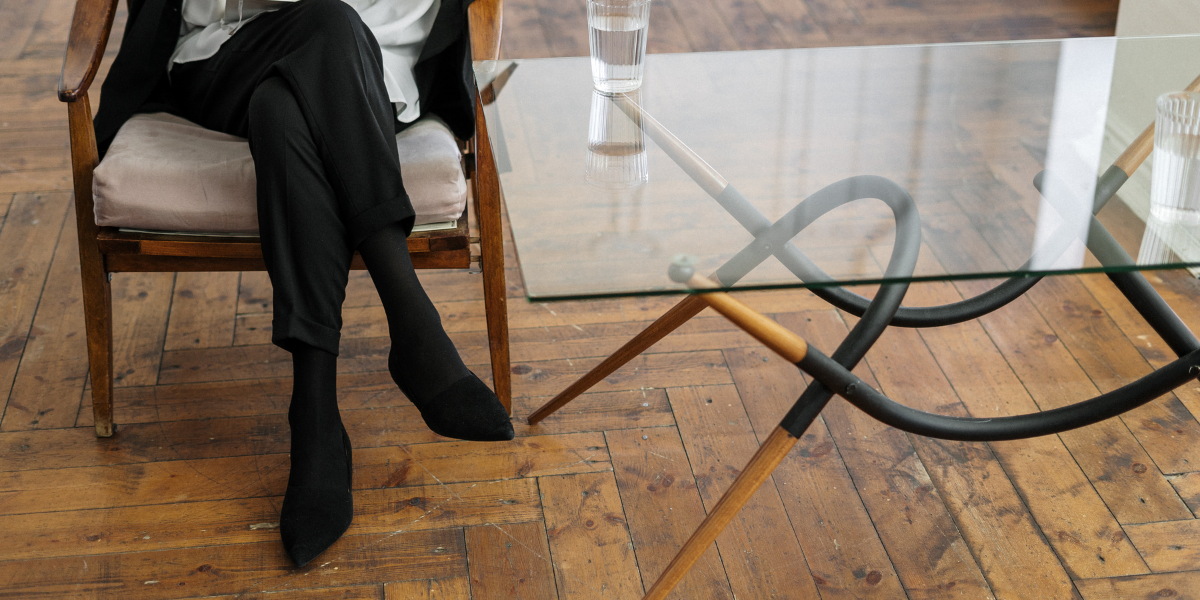Consultation within the context of mental health is something every therapist should be familiar with and engage in--yet there is this anxious response that can sometimes be elicited from newer practitioners who may feel intimidated by the prospect of collaborating with other professionals...
It's as though it shines a spotlight on our imposter syndrome and subsequently feels too overwhelming to consider. Here at KDH Collective we've come to relish the opportunity to work alongside other therapists and want to invite you to read about our experiences in the hopes that you, too, can reap the benefits of professional connection.
-
What are your reasons for considering consultation?
- Monet: One of the major tenets of our profession is continuing education and for me, that goes beyond taking one-time classes or long-term trainings. I wanted to learn from others in the field who had been doing good work and for longer amounts of time so I could glean from them the ways in which they've made this career sustainable.
- Ashley: Working with OCD is so nuanced, and the treatment is so specialized that for that reason alone it can be helpful to get feedback or hear from other professionals about how they approach specific cases. I also genuinely love learning, and want to absorb new clinical knowledge!
- Whitney: I am a big 'ole nerd and I love learning, and for me, part of learning is in hearing how other folks conceptualize cases and theory related to the work we do in the therapy room. I think especially as I have been working with the other clinicians at KDH Counseling + Collective, I really appreciate each of our neurotypes causing us to be intensely interested in different, but related concepts. When all of our very special brains come together, it's like magic.
- KD: Consultation is a transformative experience that takes us beyond the initial stages of training and immerses us in a world of true learning. It is a valuable opportunity to receive support, gain a deeper understanding of our continuing education, and apply what we have learned. The consultation group provides a haven where we can effectively address the challenges that arise when implementing our knowledge and skills. This process ignites a wildfire of learning, where we are all transformed through the power of questioning and reflection.
-
What are your specific goals for consultation?
- Ashley: I love connecting with other providers first of all! And the ability to look at things a new way or to learn a new approach.
- Whitney: I need the knowledge and the questions from my fellow clinicians. Sometimes I haven't considered certain questions related to the work that I do, and having other folks to realize and ask those questions always benefits me, too.
- KD: Consultation has been a journey for me, pushing me to my limits, providing unwavering support, and compelling me to question and explore existing knowledge of specific trainings. It has taken my learning to new heights, delving into the depths of understanding and growth on the continuing education and on myself.
-
What type of consultation are you interested in (e.g., individual, group, supervision)?
- Monet; I engage in group and individual consultation currently. I have the privilege of working alongside K.D. and our schedules often align so that we can sit in each other's office and discuss difficult cases with one another. For groups I meet bi-weekly and monthly with other clinicians.
- Ashley: I attend two monthly consultation groups- One that is ACT based for OCD and one that more broad- covering OCD and related disorders.
- KD: I thoroughly enjoy both individual and group consultation. The exchange of ideas and perspectives during this process is incredibly valuable for everyone involved.
-
What are your preferences for a consultant (e.g., experience, specialty, theoretical approach)?
- Whitney: Being neurodivergent (ND), I'm finding that I am getting a lot out of consultation with other ND clinicians. It's nice to know that my intense focus on certain topics or concerns is appreciated and valued, and it's also really nice to know that my communication style works with other ND folks. It's just a lot easier all around.
- KD: I find immense value in engaging in consultation after completing a training. It allows us to deeply assimilate the information and effectively implement evidence-based protocols. Moreover, by collaborating with like-minded therapists, we can explore more questions and ideas, fostering a transformative process that ultimately leads to improved outcomes for our clients.
-
What are some of the challenges you are facing in your work as a therapist?
- Ashley: A constant challenge is the misdiagnosis and mistreatment of OCD. That is my main reason for specializing in this population- to hopefully improve the field.
- Whitney: Oh my gosh, I totally agree with Ashley about misdiagnosis. So many of my clients tell me about their experiences in receiving diagnoses that did not actually fit their experiences of the world or themselves, and that can be incredibly frustrating.
- KD: I strive to apply the protocols I learn from continuing education, while also ensuring that my work remains within my scope of practice when I take liberties or intertwine approaches.
-
What are the challenges and opportunities of consultation in the current mental health landscape?
- Whitney: I know it has been difficult to find people who are invested in the commitment of a regular consultation meeting, let alone groups of people with whom I feel comfortable with and who are doing work in similar veins that I am working in. It's hard to value a regular meeting if I'm not feeling capable of offering anything useful for my peers. Opportunities are plentiful now that I do have a core group of folks who are committed to our consultation relationships and with whom I feel safe enough to both ask for and provide feedback. Being able to meet virtually has also been incredibly helpful as we are able to be more flexible with our schedules as a group in order to make those meetings happen. Another opportunity I'm seeing is in having a group who are all working from different theoretical lenses as we are able to kind of point to other sides of the same coin to hopefully achieve a more whole-person kind of view of clients and client issues we are struggling with. For example, being a more talk-based clinician, it's helpful to get the more behavioral suggestions/ideas that don't naturally come to the forefront of my mind.
- KD: One of the challenges in finding the right consultation group is avoiding an echo chamber. While these groups may feel comfortable, they do not foster true learning. Learning involves engaging in debates, considering contrary thoughts, and participating in meaningful discourse. It's important to seek out consultation experiences that make you uncomfortable not because you feel judged, but because they push you to question your own beliefs and assumptions. Monet often challenges me in this way, and it's through these moments that we truly grow. Good consultation should always inspire this kind of growth and self-reflection.
-
Any final thoughts about consultation?
- KD: I engage in consultation for approximately 15 hours each month. This invaluable connection with therapists at varies stages of development, has been a humbling experience that provides the necessary support for my job. Despite having 18 years of experience in the field, I am aware that I cannot possibly know everything. This knowledge keeps me open to receiving support and guidance from my fellow practitioners, fostering a continuous learning process. If we do our job well we will forever be open to learning from fellow practitioners and from our clients. Let this openness guide you!
Interested in dipping your toes into consultation? Contact KDH Collective to see about our consultation services today. We love empowering clinicians to be stewards of effective mental health therapy.




